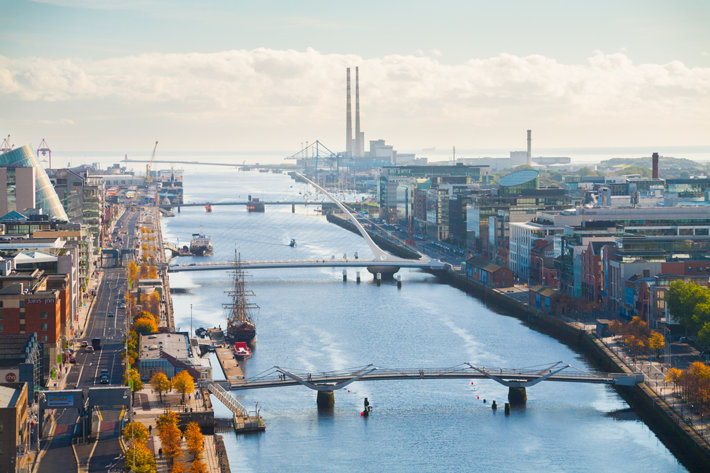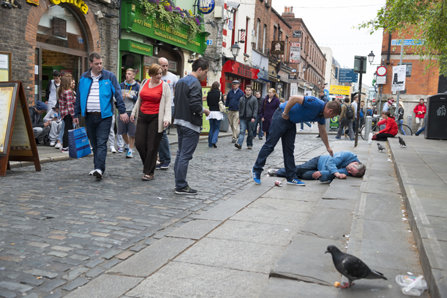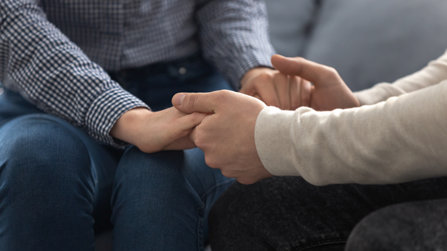The Scope of Alcohol Abuse in Ireland

Alcohol runs deep through the rich Irish culture and has for centuries. The Irish people appreciate their local pubs—many of which are still standing and operating after hundreds of years. And the Irish continue to enjoy the whiskey, beer, and good conversation that their ancestors did in these same buildings, on the same streets. Ireland would not be Ireland as we know it without its charming neighborhood pubs, many showcasing Irish music and poets. Even some of the fabled Irish leprechauns enjoyed a tipple.
Of course, there is so much more to Ireland than its pubs and whiskey—there are castles, cathedrals, theater, and music. And not every Irish drinker is an over-drinker. But alcohol in Ireland is a viable two-billion-euro industry and a mainstay of social life. Is it any wonder that some of the Irish have a problem with overdrinking? And more importantly, can something be done to reduce alcohol misuse statistics in the Emerald Island?
Reports Indicate Alcohol Misuse in Ireland is Rising
According to an article in “TheJournal.ie” by Cormac Fitzgerald (which drew information from a Lancet study), Ireland has one of the highest per-capita rates of alcohol consumption in Europe. This article reported that 84% of Irish adults drink alcohol with some regularity, a percentage projected to increase to 86% by 2030.
Additionally, the percentage and the amount of alcohol consumption has been increasing in Ireland over the last few years. In 2010, about 82% of Irish adults drank alcohol, with per capita consumption levels at 12.33 liters of pure alcohol consumed per adult per year. In 2017, about 84% of Irish adults drank alcohol, with per capita consumption levels at 13.19 liters of pure alcohol consumed per adult per year. As alcohol misuse increased in Ireland, the percentage of Irish adults who abstain entirely from alcohol dropped slightly, from 11% in 2010 to 9% in 2017.
Ireland and Binge Drinking

The fact that 84% of Ireland’s adult population drinks alcohol is not surprising due to cultural circumstances, but the rate of alcohol misuse is cause for concern. Another article in Ireland’s periodical, “TheJournal.ie”, citing data from a World Health Organization, reported the following:
- Ireland has the second-highest rate of binge drinking in the world. About 39% of Irish people age 15 and over engaged in binge drinking in the month before the article. That rate is second only to Austria, which came in at 40.5%. Binge drinking is defined as drinking at least six standard drinks (60g of alcohol) on one drinking occasion.
- Men in Ireland are more likely to drink to excess than women, with 62.4% of men over the age of 15 reporting they drank alcohol to excess at least once in the month leading up to the survey.
- 33.1 percent of women in the same age group admitted to binge drinking in the past month.
“A large amount of Irish people are putting themselves at risk of health harms due to their binge drinking. The WHO has found that worldwide about 16 percent of drinkers engage in binge drinking, but in Ireland it is three times this amount…”
Suzanne Costello, an addiction treatment professional in Ireland, commented on the study findings, “A large amount of Irish people are putting themselves at risk of health harms due to their binge drinking. The WHO has found that worldwide about 16 percent of drinkers engage in binge drinking, but in Ireland it is three times this amount, and this harmful drinking pattern is reflected by the fact that three people are dying every day due to alcohol in Ireland and 2,000 hospital beds are occupied here every night by people with alcohol-related illnesses.”
Setting the Stage for Alcohol Misuse
According to Dr. Garrett O’Connor, about 2.14 million Irish adults engage in alcohol misuse each year, a steep number out of an adult population of just 4.2 million people. That equates to 54% of Irish adults drinking to excess, compared to the European average of 28%.
Dr. O’Connor suggests that reasons for over-drinking among the Irish may be rooted in lingering realities created through the harsh impact of British colonialism from the 17th and 18th centuries. The Irish's memories of starvation and persecution at the British's hands remain embedded in the Irish psyche.
The Irish of today still feel the effects of British colonialism from the 17th and 18th centuries, similar to how Native Americans of the U.S. still haven’t managed to escape the cultural impact of persecution by American colonial powers many decades ago.
Quoting Dr. O’Connor, “Contemporary Irish drinking patterns, particularly drinking regularly to intoxication, have their roots in history where alcohol often made the difference between survival and death. This propensity has been carried down in the Irish cultural DNA as a sort of unspoken dispensation for Irish Catholics to regard hard drinking as a justifiable consolation for 400 years of extreme poverty, shame, starvation and persecution suffered by their forebears under colonial rule, but which they themselves may never have endured.”
Addiction Treatment—Breaking the Chain of Alcohol Addiction

There is an attempt in some Irish sectors to encourage safer drinking habits. These trends include low- or no-alcohol beer, healthier liquor products, and increased awareness of drinking habits. This approach will work for some, but those who are already addicted to alcohol will need more help.
Though culture and history play their role in the Irish’s affinity for alcohol, not everyone who drinks in Ireland has a drinking problem. Just as is the case anywhere globally, any Irish person who has an alcohol addiction has unique and individual underlying reasons for drinking too much.
Because addiction is a personal situation, anyone struggling with alcohol addiction can overcome it, by learning to identify and confront it.
Sources:
- https://www.thejournal.ie/alcohol-study-4622415-May2019/
- https://www.thelancet.com/journals/lancet/article/PIIS0140-6736(18)32744-2/fulltext
- https://www.thejournal.ie/binge-drinking-ireland-1464787-May2014/
- https://www.who.int/substance_abuse/publications/global_alcohol_report/msb_gsr_2014_2.pdf
- https://irishamerica.com/2012/01/breaking-the-code-of-silence-the-irish-and-drink/
- https://en.wikipedia.org/wiki/Alcoholism_in_Ireland
- https://www.drinksireland.ie/
- https://www.thejournal.ie/binge-drinking-ireland-1464787-May2014/
- https://evoke.ie/2019/12/29/food/top-5-drinking-trends-2020
- https://www.who.int/substance_abuse/publications/global_alcohol_report/msb_gsr_2014_2.pdf


 ®
®